A Civil Law System Tends To Be More Adversarial Than A Common Law System
A civil law system tends to be more adversarial than a common law system. Operations Management questions and answers. The judges have the freedom to interpret laws based on the situation. A common feature of many right-wing dictatorships is an overt hostility to socialist or communist ideas.
A civil law system tends to be more adversarial than a common law system. A civil law system tends to be less adversarial than a common law. A civil law system tends to be less adversarial than a common law system because the judges rely upon detailed legal codes rather than interpret- ing tradition precedent and custom.
Judges in a common law system have the power to interpret the common law so that it applies to the unique circumstances of an individual case. The judges decisions are based on detailed legal codes. Civil law has the laws made by the government and the courts apply them while common law has the judges making the majority of the laws through precedents.
A civil law system tends to be less adversarial than a common law system since _____. A set of beliefs concerning the cause nature and purpose of the universe especially when considered as the creation of a superhuman agency or agencies usually involving devotional and ritual observances and often containing a moral code governing the conduct of human affairs. Both systems have the same goal.
FALSE A civil law system tends to be less adversarial than a common law system since the judges rely upon detailed legal codes rather than interpreting tradition precedent and custom. The judges decisions are based on religious teachings. The judges are guided by interpretations made in prior legal cases.
A common law system tends to be less adversarial than a. To find the truth. Common laws cannot be altered clarified or amended.
Civil law has the laws made by the government and the courts apply them while common law has the judges making the majority of the laws through precedents. The adversarial system uses specific laws precedents and legal rules to determine who wins.
The judges have the freedom to interpret laws based on the situation.
Civil law systems allow for judges to interpret a contract dispute but this feature is absent in common law systems. To find the truth. When comparing contracts in common law and civil law systems it can be said that Multiple Choice 0 contracts drafted under a civil law system tend to be more specific than those drafted under a civil law system. Civil law has the laws made by the government and the courts apply them while common law has the judges making the majority of the laws through precedents. A civil law system tends to be more adversarial than a common law system. The adversarial system uses specific laws precedents and legal rules to determine who wins. The judges decisions are based on detailed legal codes. The judges have the freedom to interpret laws based on the situation. View Homework Help - international business_51 from BUSINESS 51 at The University of Sydney.
Contracts drafted under a common law framework tend to be less specific and short. Contracts drafted under a common law framework tend to be less specific and short. Judges under a civil law system have less flexibility than those under a common law system. When comparing contracts in common law and civil law systems it can be said that Multiple Choice 0 contracts drafted under a civil law system tend to be more specific than those drafted under a civil law system. Judges under a civil law system have less flexibility than those under a common law system. A civil law system tends to be more adversarial than a common law system. The two legal systems in question are the adversary system most commonly practiced in the United States and the civil law system also referred to as the inquisitorial system most commonly practiced in European countries.


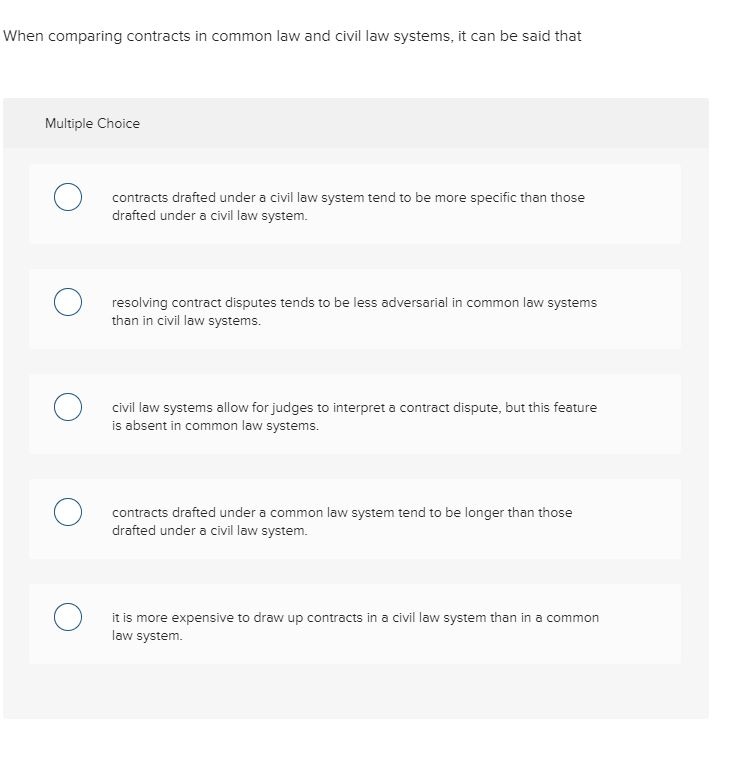


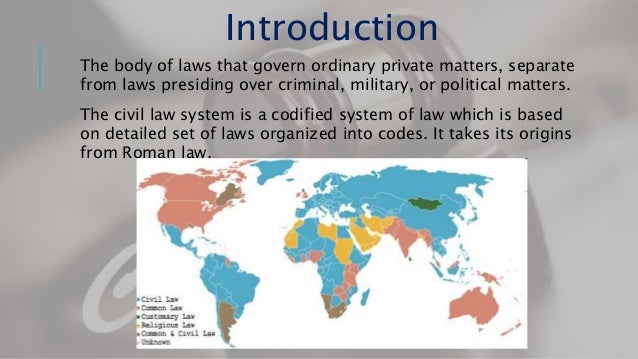


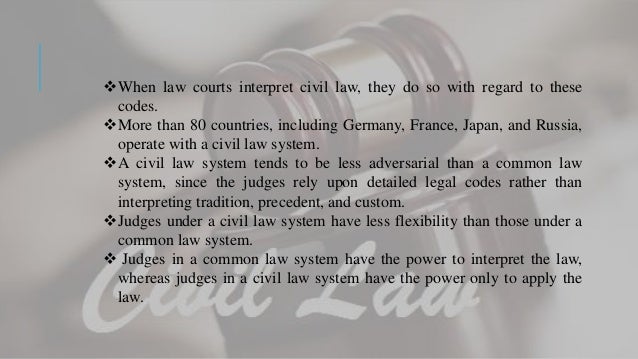



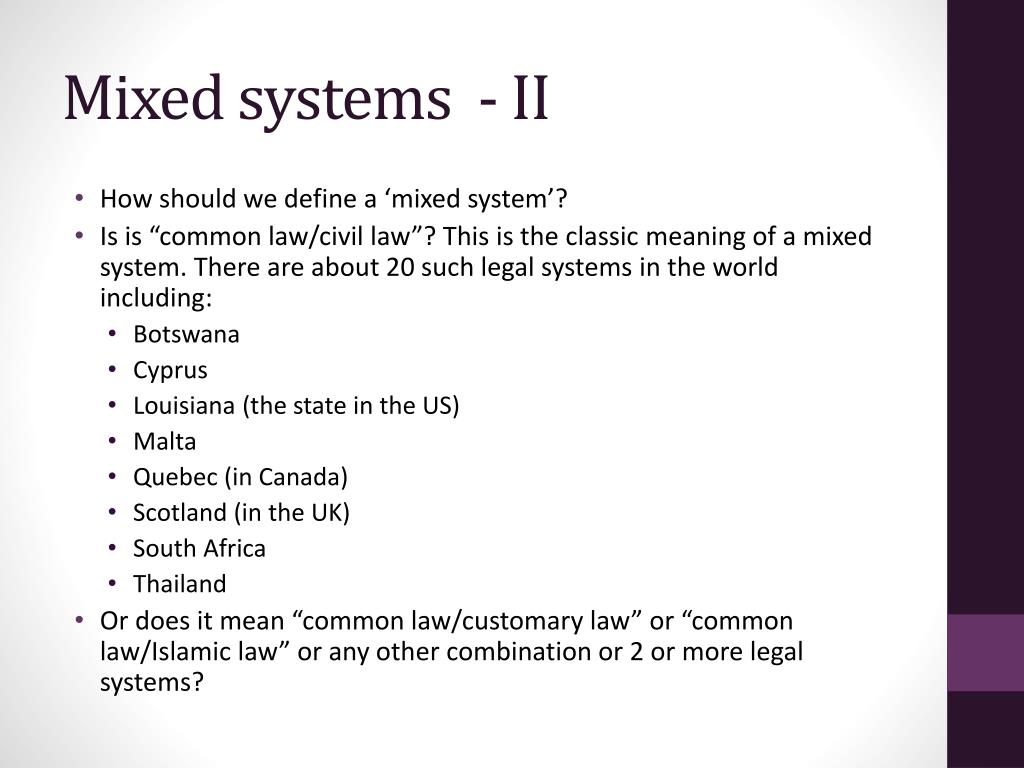

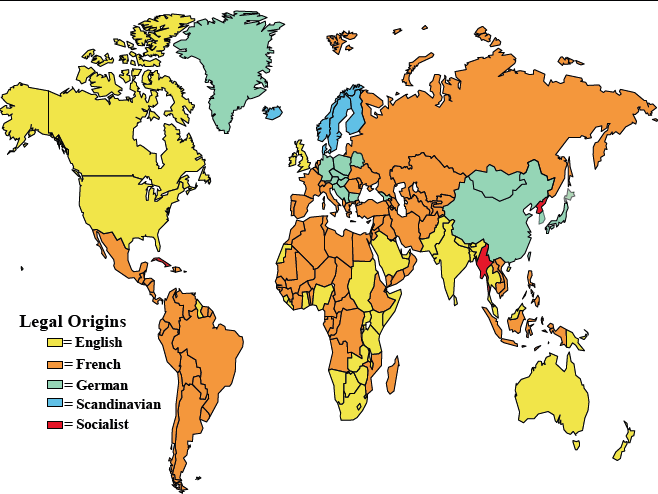




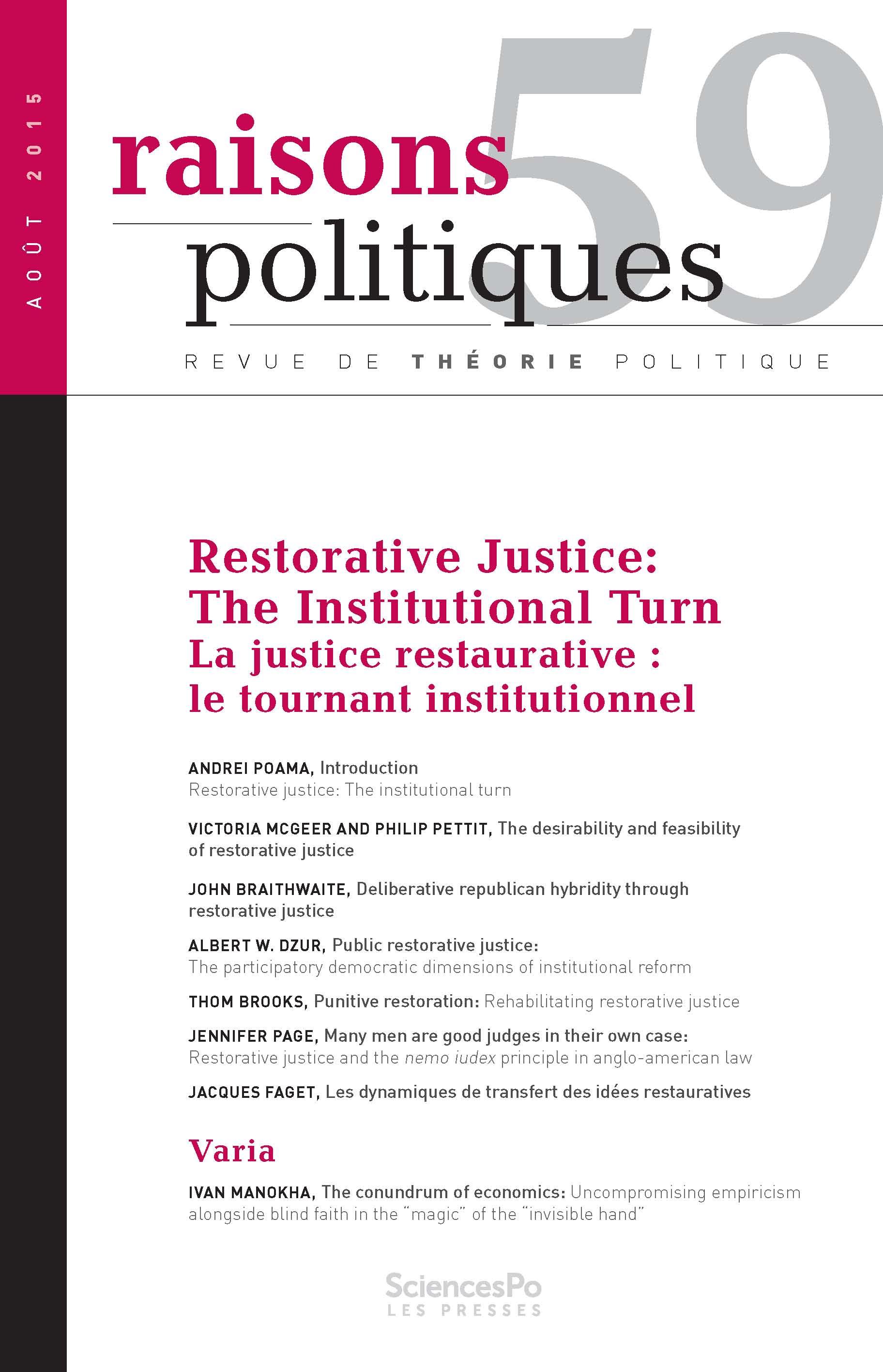

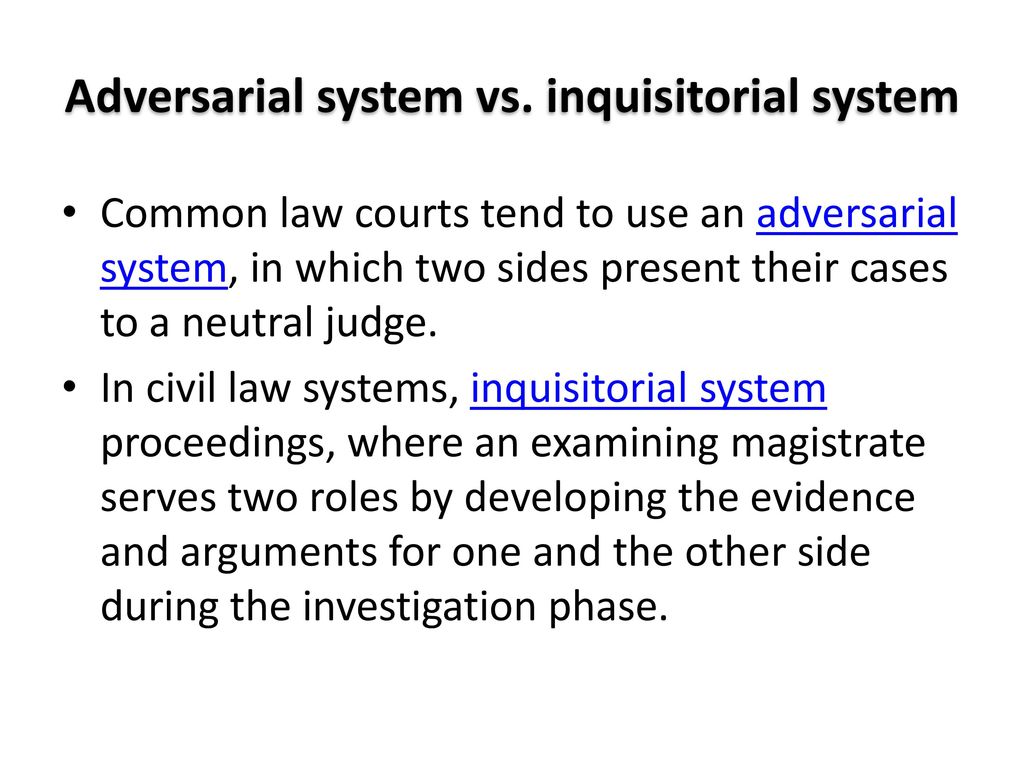









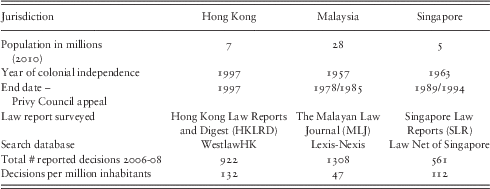
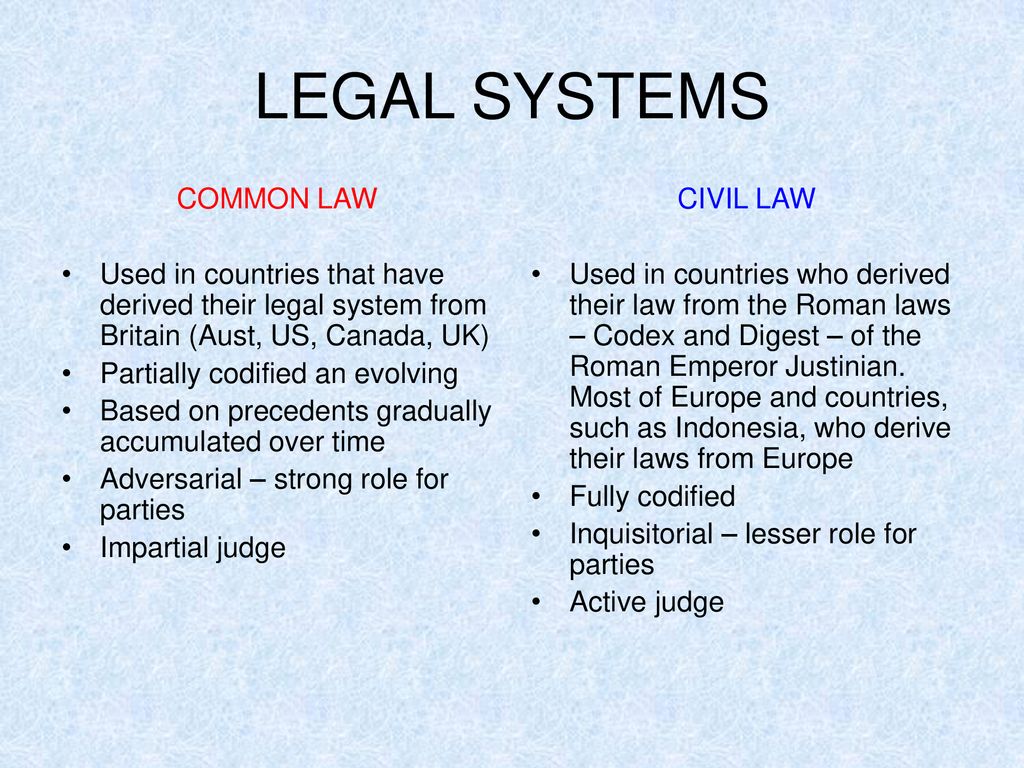





Post a Comment for "A Civil Law System Tends To Be More Adversarial Than A Common Law System"